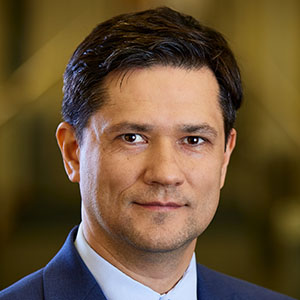Combined Pediatrics and Medical Genetics Residency Program
The Combined Pediatrics and Medical Genetics Residency Program is a remarkable opportunity for medical school graduates to complete a combined, five-year residency program in pediatrics and medical genetics.
Program Leadership
Program Directors

Oleg A. Shchelochkov, M.D.
- Program Director (Medical Genetics)
- Combined Pediatrics and Medical Genetics Residency (NHGRI/NIH)

Aisha Barber, M.D.
- Director, Pediatric Residency Program
- Children's National Hospital
Program Coordinators

Holly Babcock, M.S, C.G.C.
- Program Coordinator
- Combined Pediatrics and Medical Genetics Residency (NHGRI/NIH)

Kyia J. Reynolds-Davis, B.S.
- Program Coordinator
- Combined Pediatrics and Medical Genetics Residency (NHGRI/NIH)
Last updated: April 25, 2024
